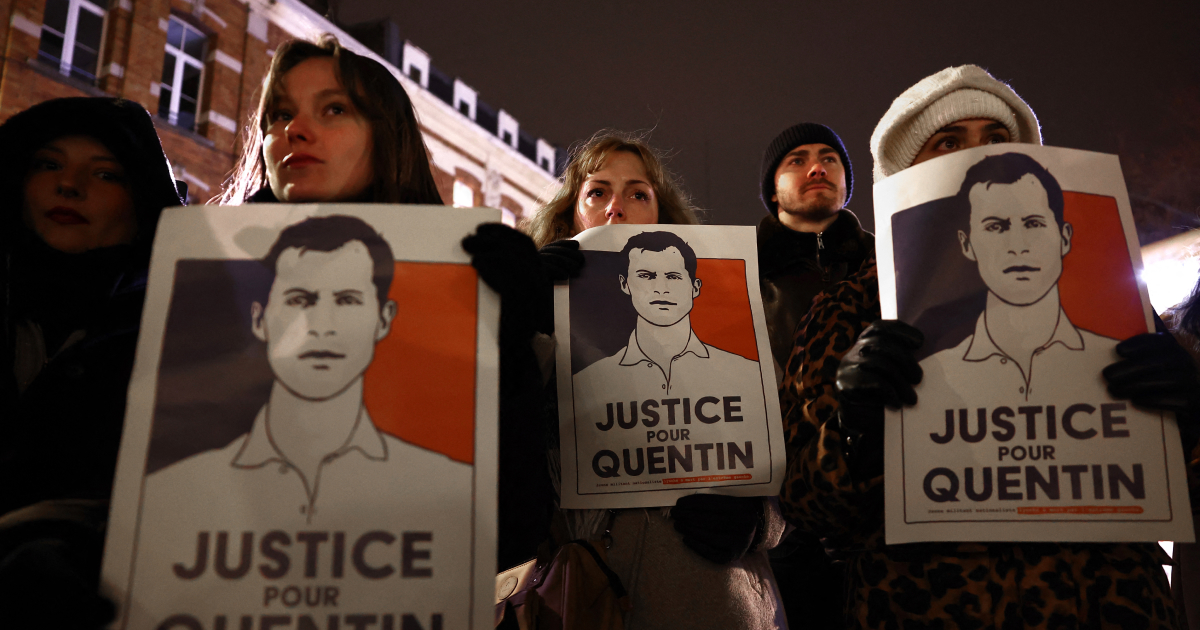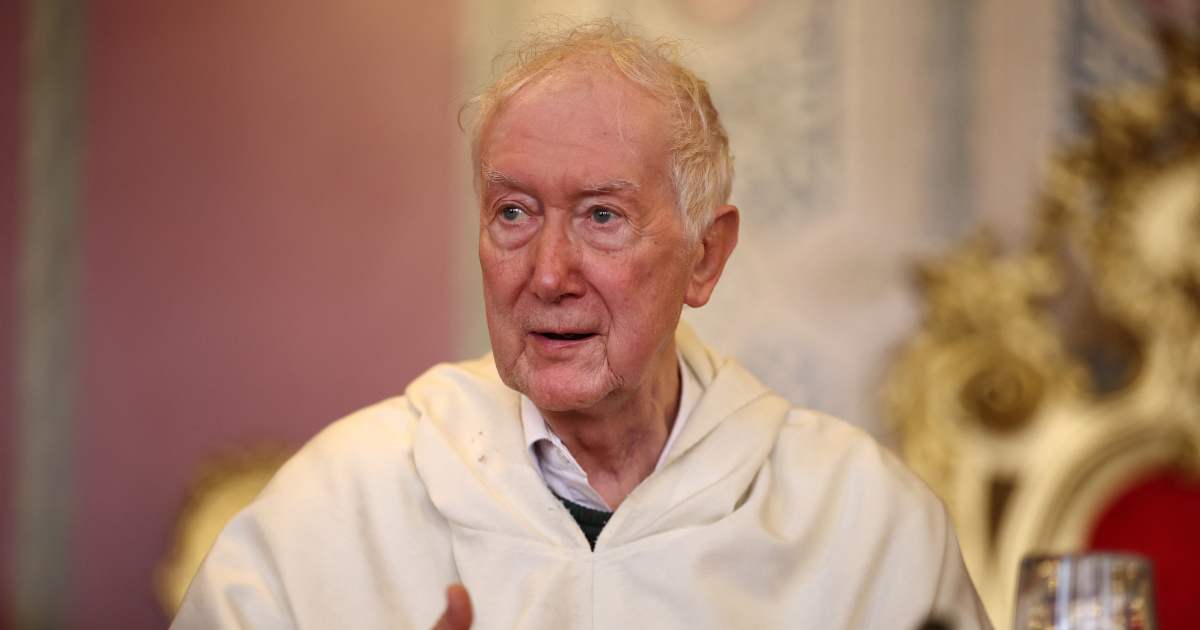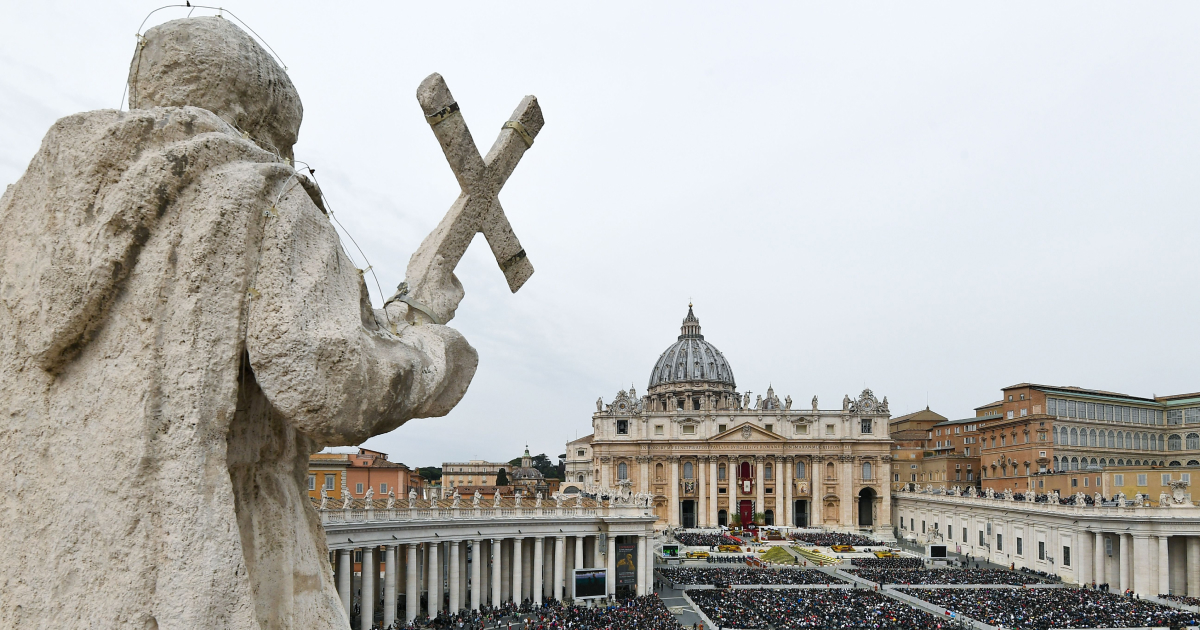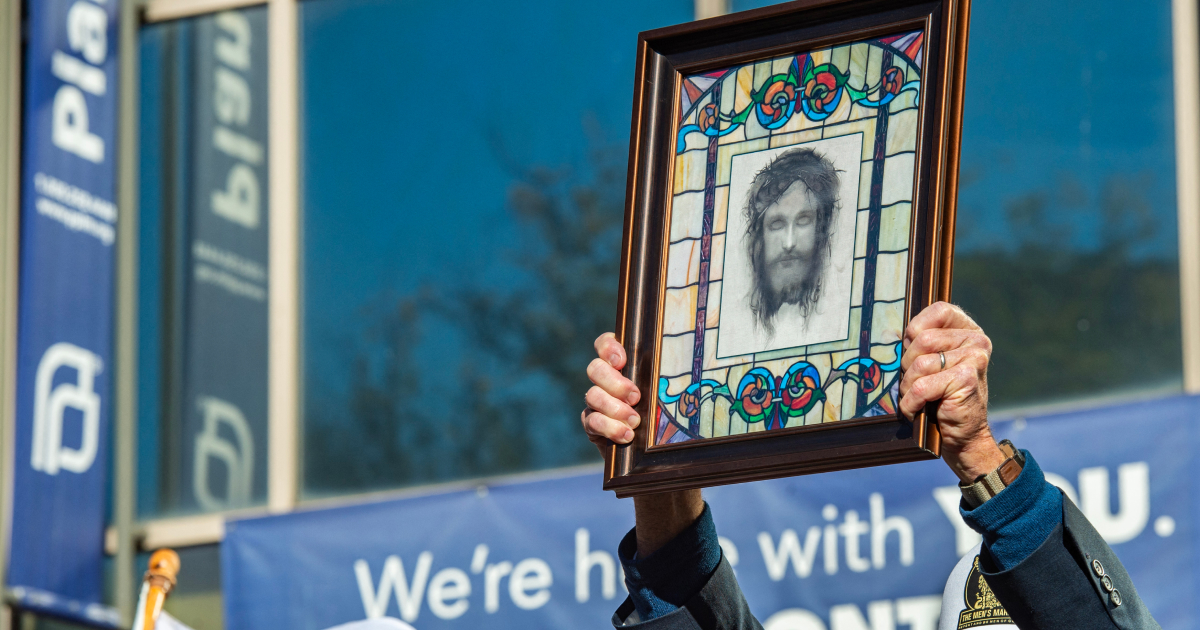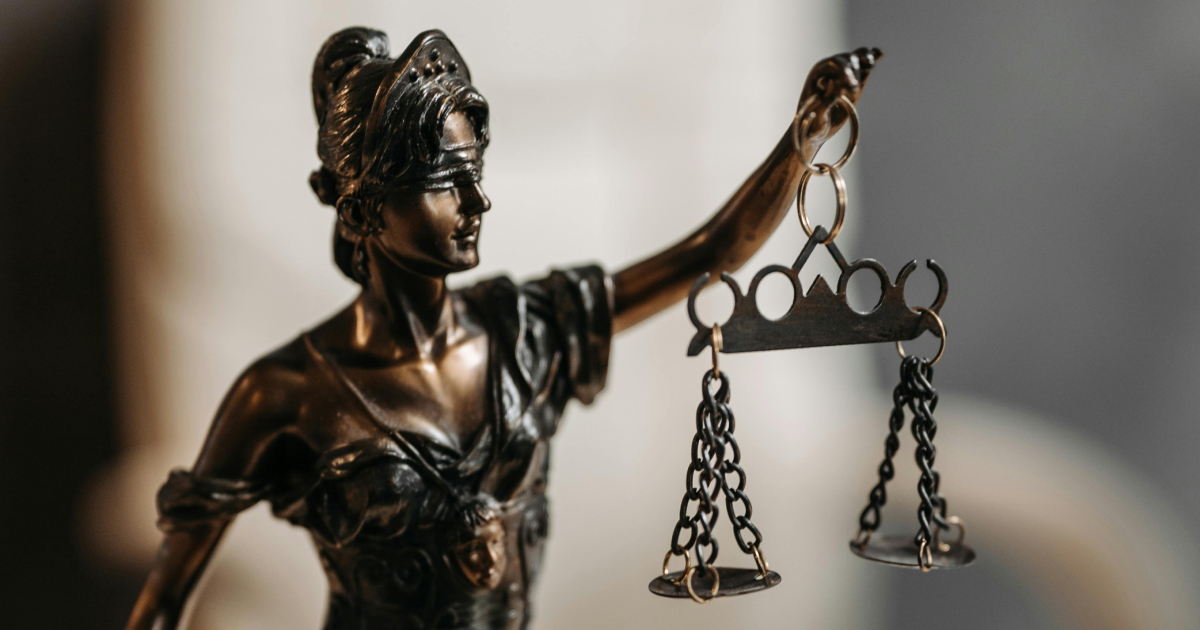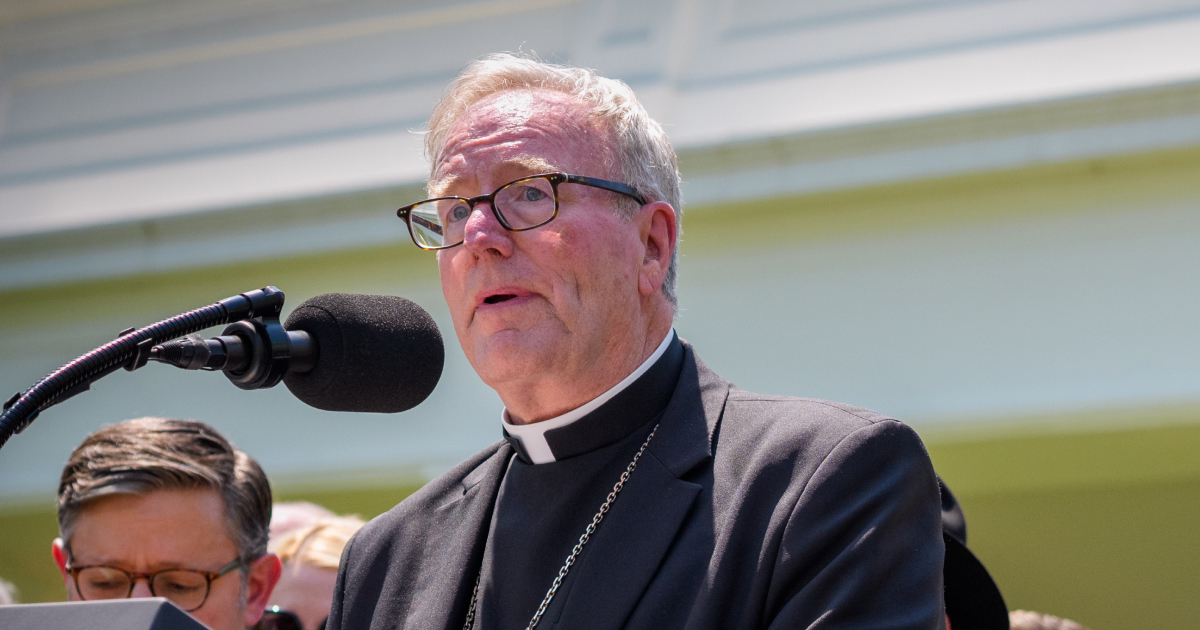St Andrew’s in Holborn is a quaintly named church in the City of London which found itself in the international news this week courtesy of the stress and strain endured by the Anglican assistant bishop of Fulham.
The fact that the Rt Rev’d Jonathan Baker is Bishop of Fulham doesn’t have any bearing on the circumstances of his living in Holborn, due to the quirks of the history of the City of London and the eccentricities of the Church of England, where historic whimsy and charm are often favoured over factual accuracy.
Nonetheless, irrespective of the international splash the Bishop of Fulham made in the news in the last few days, the real historic interest of the parish for Catholics has more to do with what William Shakespeare got up to when he lived in the area in his latter years, and its significance for the true faith. Holborn is the centre of the legal life of London, and a number of Shakespeare’s plays and masques were performed in Gray’s Inn, just round the corner from St Andrew’s Holborn. Indeed, Shakespeare lived just a few minutes’ walk from there, half a mile away, in the parish of Blackfriars.
If we are going to comment on the phenomenon of raucous teenagers chanting Abba songs late on Saturday night, keeping the worthy burghers of Holborn awake, and lament the deleterious impact that has had on the mental health of the Anglican assistant bishop whose flat was situated in the church, it would be a dereliction of duty not to allow ourselves a historic reflection on the significance of that small quarter of the old City of London. Particularly as it allows us to consider some circumstantial evidence pointing to the fact that Shakespeare was almost certainly a Catholic.
Important though the musical reputation of Abba and the pressing need for Anglican fund-raising may be, cultural history and its riches still make a claim on the civilised mind.
So, we discover that William Shakespeare lived just half a mile away from St Andrew’s Holborn in the parish of Blackfriars towards the end of his life, between 1604 and 1612. He had lodgings in Ireland Yard, a small alleyway. But while he rented a small place there, we happen to know that Shakespeare bought, as some kind of investment, a property called Blackfriars Gatehouse (previously part of a suppressed Dominican priory).
He paid £140 for it, which was a particularly large sum of money. He didn’t live there, so why did he bother to buy it?
Blackfriars was in a precinct described as a ‘liberty’, and as such exempt from the authority of the City of London and its restrictions, which included the banning of Catholic worship. Because of that, Catholics flocked there and it became a notorious refuge for recusants. Indeed, one of the reasons we know about it was because of a tragic and notorious accident.
One hundred yards away, seven years after Shakespeare died, the upper floor of a house just up the road belonging to Anne Vaux, a well-known Catholic, collapsed. It was a terrible disaster. Over three hundred Catholics had secretly gathered there to attend Mass. Ninety-five were killed.
Why do we think Shakespeare was likely to have been a Catholic?
In part because he constantly kept out of the public eye, in particular never being recorded as attending Anglican liturgy (as he was legally required to). This leads many historians to speculate that he was providing shelter and recusant Mass space for fellow Catholics in Blackfriars, which is why he took the trouble to invest in and buy the property. Further, both sides of his family were recusant Catholics. What was he doing owning property in a recusant hot spot in the City of London which he rented to unspecified ‘others’? People join the dots with obvious results.
Until last week, Blackfriars and Gray’s Inn in Holborn were famous for their historic connections and resonances.
That is, until Bishop Baker found himself kept awake by an Abba sing-along on a Saturday night, the eve of a very busy episcopal day.
It is never easy to feel as much sorrow as one wants to when faced with the financial woes of Church of England parishes, knowing the Church Commissioners have over ten billion pounds at their disposal.
Catholics in particular can’t avoid wondering if any of their historic money is in the pot still after the state takeover of all its assets in the mid-1500s.
But putting as many of those thoughts as possible to one side, it is clear that many parish churches are having trouble making ends meet. Parish churches in particular can feel the pinch and the pressure to raise funds, and this can lead to some strange economic and cultural adventures, many of which take their toll on the clergy.
The principle of ‘quis custodiet ipsos custodes’ is often translated from politics into pastoralia within church circles as “who cares for the carers, or who pastors the pastors”?
In this case, whose responsibility was it to protect the Bishop of Fulham from the unexpected fallout of hiring the church he is responsible for, and where his episcopal flat is located? Who might have saved him from acting precipitously, and confronting a live concert in his church late at night with all the tragic overtones of a Daniel entering the lions’ den—but in this case with a less happy outcome?
No doubt to raise money, someone in the Church rented it out to the City Academy Voices choir for a concert. Their programme involved an energetic teenage celebration of the cultural richness of Abba. A quick glance at the YouTube performances of City Academy Voices gives one a chilling taste of what the poor bishop endured late that Saturday night after he and Mrs Baker had retired to their bedchamber to prepare for the morrow.
Any pious person, finding themselves at home on a Saturday night, after compline, and trying to compose themselves for sleep would be immediately able to sympathise with the plight of the poor bishop. He, after all, also had to be at his best for the mysteries that follow on Sunday. Who in those circumstances could avoid being tempted by the demon of despair if they were faced with a score or more of energised exultant teenagers singing Abba with gusto, accompanied by a running electric bass, late into the wee hours?
If, when Dante composed his Divine Comedy, and did his artistic best to describe the sixth circle of hell, either Abba, teenagers singing in large gyrating crowds, or electric bass guitar had existed, he would surely have put them in that fearful place. And the sixth circle of hell was where poor Bishop Baker must have imagined he had come to on that fateful Saturday night.
Anyone in any doubt of the extent of his discombobulation and mental distress will understand how dire the situation must have seemed to him after just a brief glance at the YouTube record. There one sees the effect of the speed and desperation that accompanied his descent downstairs from his flat to interrupt the live concert.
Dressed only in a flimsy blue dressing gown and pyjamas, bare of foot (no time to find the slippers) and with tousled hair, he burst onto the chancel and stared down both choir, band and audience. Thinking his interruption was a choreographed part of the evening intended to add another layer of artistic colour to an already rich palette, the singers and band fell silent. What came next surprised them.
The bishop, normally famed for his erudite eloquence and unusually energetic powers of social analysis, struggled to remain coherent as he took central stage on the altar steps.
A short, succinct speech followed. Eyes bulging a little, accompanied by slightly staccato body language, he announced:
“You are in my house and that’s it.
It’s gone past 10 and this is a terrible racket.
Good night.
Thank you.
Good night.
You’re in my house.
Can you leave it now please?
Thank you.
It’s over.
Thank you.”
Well, Abba is a terrible racket. But there are moments when speaking truth to power is unwise, and that may have been one of them.
There are also moments in life when you pray that no one has you on camera as you splutter out inelegant, ill-considered syntax.
No sooner had he made the point that they were in “my house” than a well-informed heckler immediately riposted, “No it’s not, mate, it’s God’s house.”
Only in Protestantism do bishops have to put up not only with being heckled, but being addressed as ‘mate’ (“My Lord Mate to you – he might have replied, but he had other things on his mind”).
Stressed to breaking point, having fully discharged himself of all that was on his mind, he turned on his un-slippered bare heel, and withdrew.
A woman of sufficiently ample proportions to double as both verger and security guard suddenly appeared (where had she been when she was needed?) and asked them very politely to leave as quickly and as quietly as they could.
But this was too little too late.
The teenagers began to boo and yell their disdain and expressed their outrage that Abba had been unjustly vilified as a racket.
Unaware that the teaching of the Anglican denomination (in sync with the rest of Christendom) inculcates the virtue of turning the other cheek when offended, they played the “Abba-exception” card, searching their rehearsal repertoire for the most outrageous and egregious song they had mastered.
The final humiliation for poor Bishop Baker was to have to retreat upstairs, facing whatever domestic tribunal had despatched him to confront the teenage cacophony in the first place, only to be forced to retreat to the strains of ‘Dancing Queen’ sung with unusual levels of energetic vitriol and musical commitment; no doubt reflecting as he went on the depths of wisdom contained in St Peter’s second letter and second chapter, where a situation is described with pathos as someone’s “latter state becoming worse than the former.”
Is there a moral to this cautionary tale where the historical resonances of William Shakespeare defending recusancy can in a split second of history be overshadowed by millennial teenagers defending the reputation of Abba in the face of outright episcopal onslaught?
Type in ‘Gray’s Inn, Holborn and Blackfriars’ in any search engine from this moment forth, and you will find information about Shakespeare’s masques, early legal life in London and Sir Christopher Wren relegated to page 20, and the earlier pages dedicated to a fraught underdressed Anglican assistant bishop lecturing the youth of his day on the lateness of the hour, the inelegance of Abba, and who in his opinion owns the building.
The moral may be one that relates to the skills required to fundraise when inviting secular teenage musicians into a place of worship, or to developing a more informed perspective on when to use a verger and when to uncage an enraged bishop. It may have to do with the limitations of speaking truth to power, or living over the shop. But whatever it is, there may also be the law of unintended consequences at work. For many fear that if, as many claim, there is a revival among Gen Z in Anglicanism, it might just have gone into reverse.





.png)


